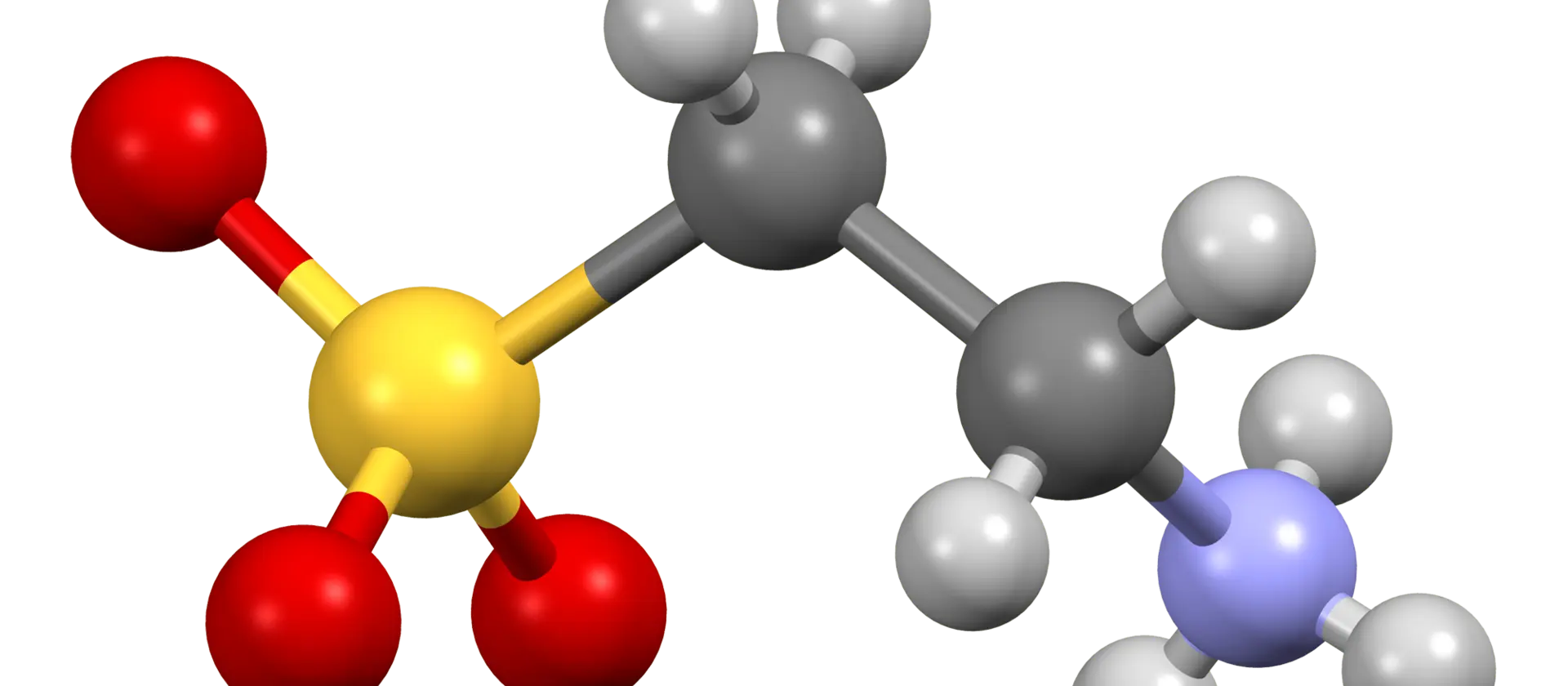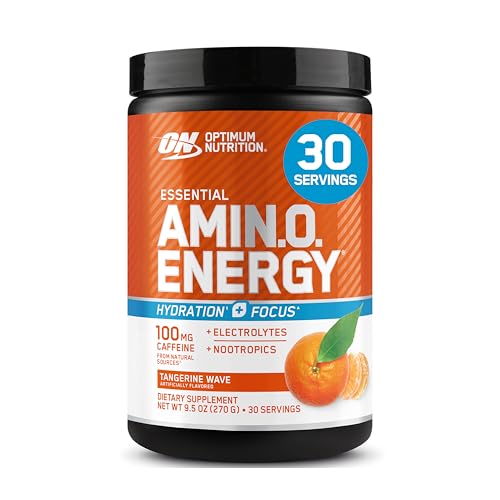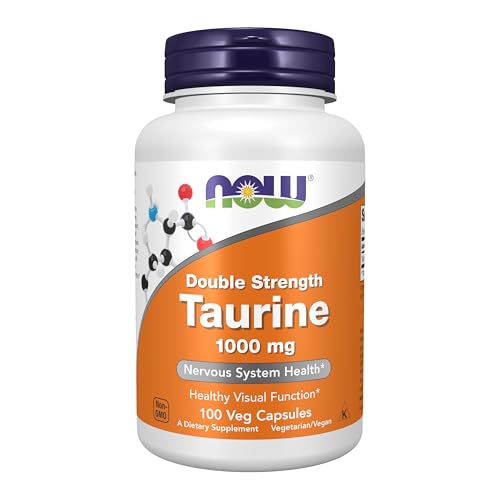If you’ve noticed a decline in energy, mental sharpness, or recovery as you’ve aged, there’s a hidden factor you might not have considered: taurine. This unique compound, often miscategorized as an amino acid, is the most abundant in critical areas like your brain, heart, and retina. Yet, by the time you reach 50, your levels may have plummeted by up to 80% compared to your 20s. Could this single drop explain why so many aspects of health seem to falter with age? Let’s explore what it does, why deficiency is so common, and how addressing it could transform your well-being.
Cellular Health and Brain Function
Taurine isn’t your typical amino acid—it doesn’t build proteins. Instead, it’s a sulfonic acid that plays a fundamental role in regulating cellular processes like osmosis, calcium signaling, and mitochondrial function. Without it, your cells struggle to maintain stability. In the brain, concentrations are 50 to 100 times higher than in blood, making it a key player in the central nervous system (CNS). It acts as a natural modulator of neurotransmission, protecting neurons from damage caused by overstimulation, a process known as excitotoxicity.
One of taurine’s standout functions is its ability to activate GABA-A and glycine receptors, mimicking the calming effects of anti-anxiety medications but without the side effects. This makes taurine a natural ally for reducing stress, improving sleep quality, and managing anxiety. Research published in Biomolecules highlights taurine’s protective role against calcium overload in neurons, a major cause of brain cell death in conditions like diabetes or chronic stress (NIH.gov).
Taurine and Heart Health: A Vital Connection
Your heart is another area where it's presence is critical—it holds the second-highest concentration of this nutrient in your body. Taurine regulates calcium levels in cardiac cells, helping to prevent irregular heartbeats (arrhythmias) and safeguarding against heart failure. Studies have directly linked taurine deficiency to cardiomyopathy, a condition where the heart muscle weakens. A review in Molecular Medicine underscores taurine’s protective effects on cardiovascular health, noting its ability to mitigate damage from oxidative stress and inflammation (NIH.gov).
Beyond the heart, taurine’s benefits extend to metabolic health. It improves insulin sensitivity and helps manage blood glucose levels, offering protection against diabetic complications like neuropathy and retinopathy. This makes it a powerful tool for those concerned with diabetes prevention or management.
Optimum Nutrition Amino Energy Powder Plus Hydration, with BCAA, Electrolytes, and Caffeine, Tangerine Wave, 30 Servings (Packaging May Vary)
Reach for Optimum Nutrition Amino Energy Plus Electrolytes Energy Drink Powder anytime you need a boost of energy, muscle recovery and electrolyte support, whether you’re lifting, running, biking, hiking, playing team sports, or just running your daily errands. Each two-scoop serving of this anytime energy powder contains 100mg of caffeine from natural sources to support energy and focus, 5g of essential amino acids – including BCAAs – to aid muscle recovery, and electrolytes to replenish those lost in sweat and boost hydration. Use as a pre-workout powder, postworkout recovery drink, or use this energy drink mix anytime you need a morning or afternoon pick-me-up. With zero sugar and only 5 calories per serving, it’s a healthier and more functional option than sugary energy drinks. This 10.5-ounce package contains 30 servings of electrolyte powder in a delicious Tangerine Wave flavor. Optimum Nutrition Amino Energy and Electrolyte Drink Mix offers the same amino blend as our regular Amino Energy Drink Powder with the addition of electrolytes such as potassium, sodium and magnesium to help support muscle function and fluid balance.
ENERGY SUPPORT + HYDRATION: from 100 mg of caffeine from natural sources (green tea & coffee bean) per serving plus 440 mg blend of electrolytes to replace what’s lost through sweat*
SUPPORT FOR MUSCLE RECOVERY: from 5g of amino acids per serving, this amino blend includes micronized taurine, micronized L-glutamine, micronized L-arginine, and beta-alanine*
VERSATILE USAGE: Pre-workout or Post-workout powder for men and women in 5 fruit-flavors
ZERO SUGAR: 0g of sugar with no aspartame for only 5 calories per serving
BANNED SUBSTANCE TESTED: Optimum Nutrition is the World's #1 Sports Nutrition Brand. Focusing on quality control measures so you feel comfortable and safe consuming the product
View on AmazonVision, Energy, and Exercise Recovery
Taurine’s influence doesn’t stop at the brain and heart—it’s also essential for vision. The retina contains high levels of taurine, which protects photoreceptor cells from oxidative damage. Deficiency in taurine has been linked to accelerated vision loss with age, a fact dramatically illustrated by cats, who go blind without dietary taurine. Humans aren’t far behind in this dependency.
When it comes to energy, taurine supports mitochondrial function, the powerhouse of your cells. Without adequate levels, mitochondria become dysfunctional, contributing to chronic fatigue and faster aging. Additionally, during exercise, taurine acts as a myokine—a signaling molecule released from muscles that enhances performance, reduces damage, and speeds up recovery. Research in Frontiers in Physiology confirms taurine’s role in improving exercise outcomes and fat oxidation (frontiersin.org).
Taurine and Longevity: Reversing the Aging Process
Perhaps most exciting is taurine’s potential to slow aging. A groundbreaking 2023 study published in Science found that taurine supplementation extended lifespan in mice and worms while improving bone density, muscle function, and immune health. The researchers noted that taurine levels naturally decline with age, and restoring them reversed several hallmarks of aging (Science.org). This suggests that addressing taurine deficiency could be a key strategy for promoting longevity and maintaining vitality into later years.
Taurine also tackles chronic inflammation, a driver of nearly every age-related disease. By producing taurine chloramine, an anti-inflammatory compound, it helps protect against neurodegeneration, cardiovascular issues, and metabolic dysfunction.
Why You’re Likely Deficient and How to Fix It
Your body can synthesize some taurine from cysteine and methionine, but production drops sharply with age. Stress, poor diet, and lifestyle factors further deplete levels. Vegetarian and vegan diets pose an additional challenge since plant-based foods contain no taurine. Primary dietary sources include shellfish (200-400mg per 100g), dark meat poultry (150-300mg per 100g), and beef heart (200mg per 100g). Regular beef and fish provide smaller amounts, but to reach therapeutic doses of 500-3,000mg daily through food alone is impractical for most.
NOW Supplements, Taurine 1,000 mg, Double Strength, Nervous System Health*, 100 Veg Capsules
Product Description Healthy Visual Function* Taurine is a conditionally essential amino acid which is not utilized for protein synthesis, but is mainly found free in most tissues, especially throughout the nervous system.* It functions in tissues by stabilizing cell membranes, aiding the transport of potassium, sodium, calcium and magnesium in and out of cells.* Taurine helps to generate and regulate nerve impulses and aids in the maintenance of fluid balance; it is also used by the body in visual pathways, as well as in the brain and nervous system, where it works together with glycine and GABA as a neurotransmitter.* This product has twice the Taurine (1,000 mg) as in our regular strength product (500 mg). Natural color variation may occur in this product. Brand Story By
DOUBLE STRENGTH VEGAN CAPSULES: This product has twice the taurine (1,000 mg) as in our regular strength product (500 mg).
CERTIFICATIONS/CLASSIFICATIONS: Dairy Free, Egg Free, Kosher, Made without Gluten, Non-GMO, Nut Free, Soy Free, Vegan/Vegetarian
NERVOUS SYSTEM HEALTH/HEALTHY VISUAL FUNCTION: Taurine helps to generate and regulate nerve impulses and aids in the maintenance of fluid balance; it is also used by the body in visual pathways, as well as in the brain and nervous system, where it works together with glycine and GABA as a neurotransmitter.
Non-GMO
A Dietary Supplement
View on AmazonSupplementation offers a practical solution. Studies suggest 500-1,000mg daily for general health, with higher doses of 1,000-3,000mg for specific benefits like improved exercise performance or metabolic support. Taurine is considered safe, with no established upper limit. For best absorption, take it on an empty stomach or away from high-protein meals. Pairing it with magnesium, B vitamins, or zinc may enhance its effects, as these nutrients support taurine metabolism.
Conclusion: Make Taurine a Priority for Your Health
Taurine isn’t just another supplement—it’s a fundamental regulator of brain function, heart health, vision, energy production, and longevity. With levels naturally declining as we age, and modern diets often falling short, addressing taurine deficiency could be a game-changer for your overall health. Whether through targeted food choices or supplementation, prioritizing taurine offers a science-backed way to support your body’s most critical systems. Take a closer look at your intake today, and consider how this overlooked nutrient could help you thrive at any age.


